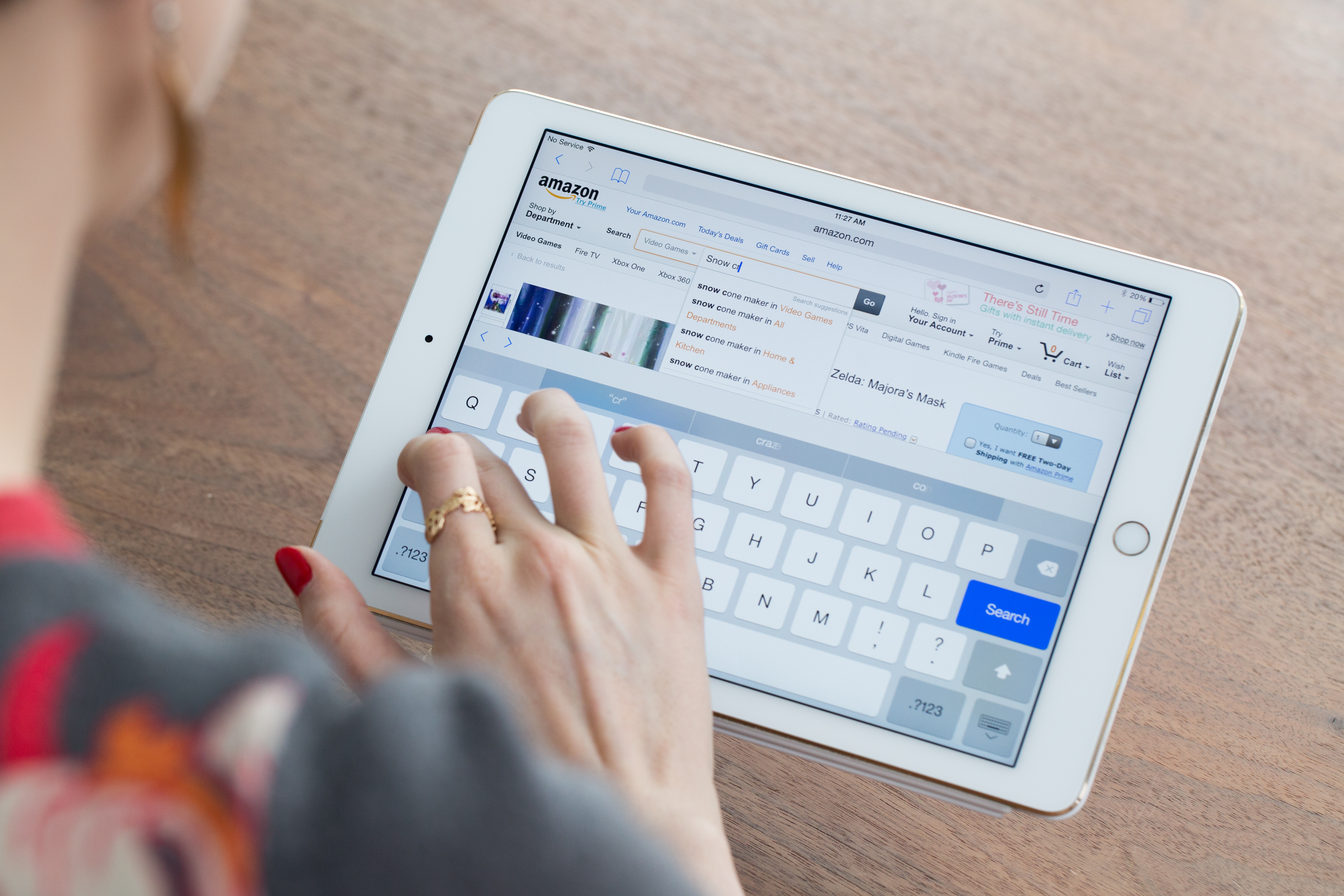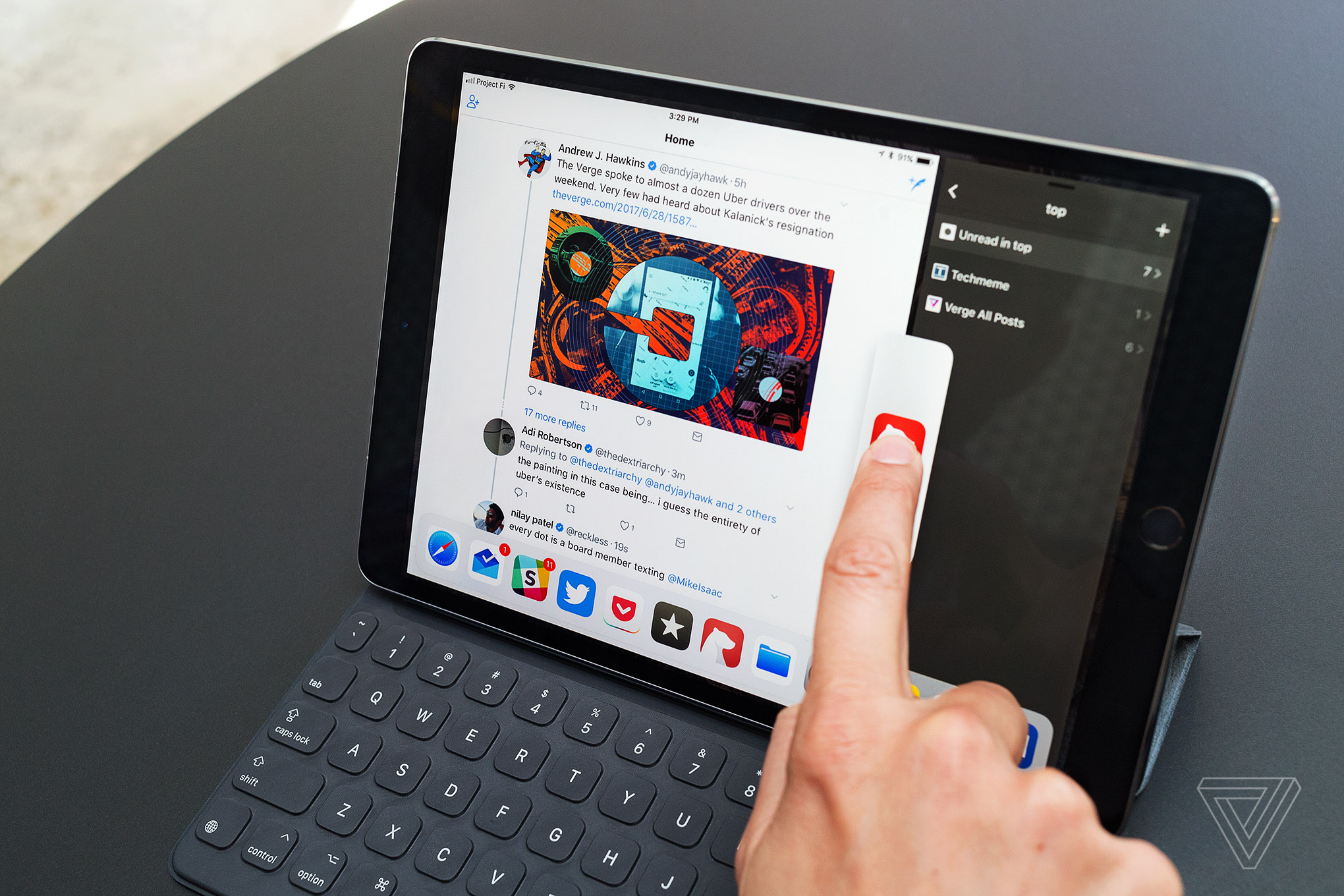Apple has a big problem. Just five years ago, its iPads and Mac laptops reigned supreme in US classrooms, accounting for half of all mobile devices shipped to schools in 2013. Apple has now slipped behind both Google and Microsoft in US schools with Google’s Chromebooks leading the way in classrooms, securing nearly 60 percent of shipments in the US as overall iPad sales declined for three straight years. Apple is now ready to strike back against Chromebooks with some cheaper iPads.
Apple is holding a special education-focused event on Tuesday that promises “creative new ideas for teachers and students.” Rumors suggest Apple is preparing to launch a $259 budget iPad model this year, while Bloomberg reports that a “low-cost iPad” will be announced alongside new education software. The new iPad could even support a stylus, like the Apple Pencil found on the more expensive iPad Pro models. Although a cheaper MacBook had been rumored to arrive, Tuesday’s event will almost certainly be centered on the iPad. Apple’s main education site has 17 devices pictured, 16 of them are iPads and only a single one is an aging MacBook Air that’s being used to administer six iPads. “What’s a computer?” asks Apple in a recent ad, making it clear the iPad is the future.

A cheaper iPad alone won’t be enough to turn Apple’s education woes around, though. Back in 2015 Apple was forced to pay $4.2 million to the Los Angeles Unified School District, after a $1 billion program to provide all of LA’s 640,000 school kids with an iPad went spectacularly wrong. Students had issues typing on the iPad screen, some were circumventing browser restrictions, and it was clear that administering iPads wasn’t an easy task.
That failed experiment, and others like it, have taught Apple some valuable lessons for iPads in schools, and the need to simplify the device management process for teachers and the experience for students. Apple’s missteps opened the door to others. “Google saw these struggles and moved to address them with Chromebooks,” says Tom Mainelli, vice president of devices at market research firm IDC. “Most people think the low-cost hardware was the primary reason schools embraced Chromebooks, and it was a factor, but the ease of deploying and managing the hardware was the primary appeal for most.” Chromebooks are dead-simple to setup and maintain by IT staff because all the data is stored in the cloud. Moreover, if a student forgets their Chromebook at home they can login with their Google account from any other device and be fully operational.
In the years since Apple’s LA iPad school blunder, the company has improved things. Schools got access to multi-user support for the iPad in iOS 9.3, Apple dropped its Apple ID requirement for iPads, a cheaper $329 iPad launched last year, and Apple has launched better management tools for the iPad. “All of these changes resulted in Apple enjoying a significant rebound in education shipments of iPads in 2017,” explains Mainelli. There’s still much more to do, though.

Apple also looks set to introduce a new ClassKit feature. It’s been spotted in iOS 11.3, and it’s highly likely that Apple will officially detail its ClassKit plans this week. It appears to be a new framework designed to let developers create new educational apps and distribute quizzes and tests to student’s iPads. There could be more iPad-specific improvements for education, especially as we edge closer to the anticipated iOS 12 unveiling at WWDC in June. A cheaper iPad with a stylus would also help compete against some of the new Chromebooks emerging with stylus support.
Apple faces some extremely tough competition in all of its announcements this week. Microsoft is also battling Google’s Chromebook dominance in the US with $189 Windows 10 laptops for schools, and the software giant held its own education event last year with teachers in attendance. Microsoft launched Windows 10 S, designed to simplify some teacher’s management headaches with laptops, and cheaper devices run the operating system that’s restricted to apps from the Microsoft Store. Microsoft is also making a big push for education this year, with tweaks to its Office 365 services and more apps and content for educators.
Google also looks like it’s ready to bring Chrome OS to tablets, which could make them an attractive (and possibly cheaper) alternative to Apple’s iPad. Android tablets haven’t fared well in education so far, as most Android developers have favored smartphones over tablet apps.
Google has a strong position in the education market thanks to Chromebooks, Apple has the quality mobile apps, and Microsoft has the productivity apps and an operating system designed to run across all types of cheaper hardware. It’s now a war for cheap computers, as my colleague Dieter Bohn pointed out last year, and we’re about to see Apple’s response.
Article source: https://www.theverge.com/2018/3/26/17155190/apple-education-event-2018-cheaper-ipads-chromebook-war
